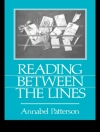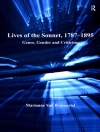This collection of essays explores current thematic and aesthetic directions in fictional science narratives in different genres, predominantly novels, but also poetry, film, and drama. The ten case studies, covering a range of British and American texts from the late twentieth to the twenty-first centuries, reflect the diversity of representations of science in contemporary fiction, including psychopharmacology and neuropathology, quantum physics and mathematics, biotechnology, genetics, and chemical weaponry. This collection considers how texts engage with science and technology to explore relations between bodies and minds, how such connectivities shape conceptions and narrations of the human, and how the speculative view of science fiction features alongside realist engagements with the Victorian period and modernism. Utilizing an interdisciplinary approach, contributors offer new insights into narrative engagement with science and its place in life today, in times past, and intimes to come.
Chapter 1 is available open access under a Creative Commons Attribution 4.0 International License via link.springer.com.
Cuprins
1. Introduction: Connectivities Between Literature and Science in the Twenty-First Century.- 2. The Rise of Psychopharmacological Fiction.- 3. Neuropathologies: Cognition, Technology, and the Network Paradigm in Scott Bakker’s
Neuropath and Dave Eggers’s
The Circle.- 4. New Science, New Stories: Quantum Physics as a Narrative Trope in Contemporary Fiction. – 5. Digital Technologies and Concrete Poetry: Word, Algorithm, Body.- 6. Towards a Posthumanist Conceptualization of Society: Biotechnology in Margaret Atwood’s
Madd Addam Trilogy and Ruth Ozeki’s
All Over Creation.- 7. Genealogies of Genetics: Historicising Contemporary Science in Simon Mawer’s
Mendel’s Dwarf and A.S. Byatt’s
A Whistling Woman.- 8. The Lures and Limitations of the Natural Sciences: Frances Hardinge’s
The Lie Tree.- 9. ‘It’s for Fellows only!’: On the Postcolonial Stance of Matthew Brown’s Maths Film
The Man Who Knew Infinity.- 10. Thomas Pynchon’s
Against the Day and the Technologies of Modernism.- 11. Identity, Memory, and Technoscientific Ethics: Limits, Edges, and Borders in
The Forbidden Zone.
Despre autor
Nina Engelhardt is Assistant Professor at the University of Stuttgart, Germany. She is author of Modernism, Fiction and Mathematics (2018) and has co-edited several special issues, including “Doing Science: Texts, Patterns, Practices” (2017) and “Above. Degrees of Elevation” (2020). She has previously held research and teaching positions at the University of Edinburgh, the Institute for Advanced Studies in the Humanities (Edinburgh) and the University of Cologne.
Julia Hoydis is Assistant Professor at the University of Cologne, Germany. She is author of Tackling the Morality of History: Ethics and Storytelling in the Works of Amitav Ghosh (2011). Co-edited volumes and special issues include “21st Century Studies” (2015), “Doing Science: Texts, Patterns, Practices” (2017), and Teaching the Posthuman (2019). Her second monograph, Risk and the English Novel From Defoe to Mc Ewan, is forthcoming (2019).












